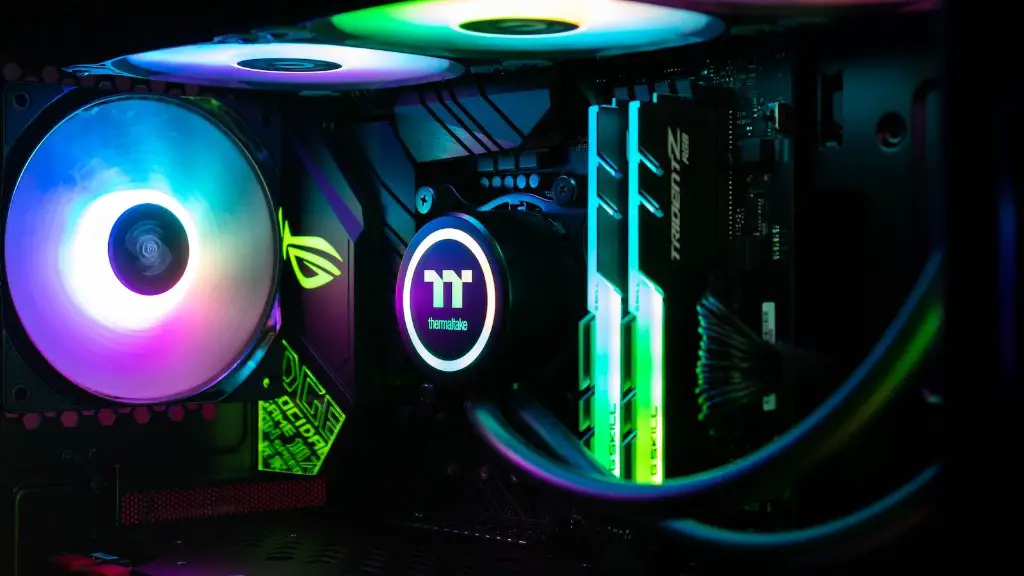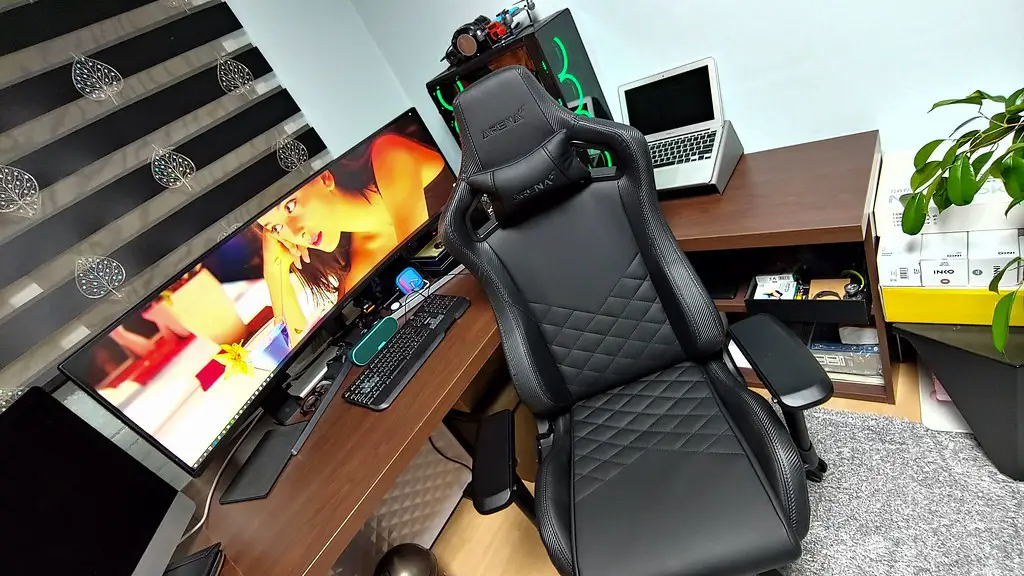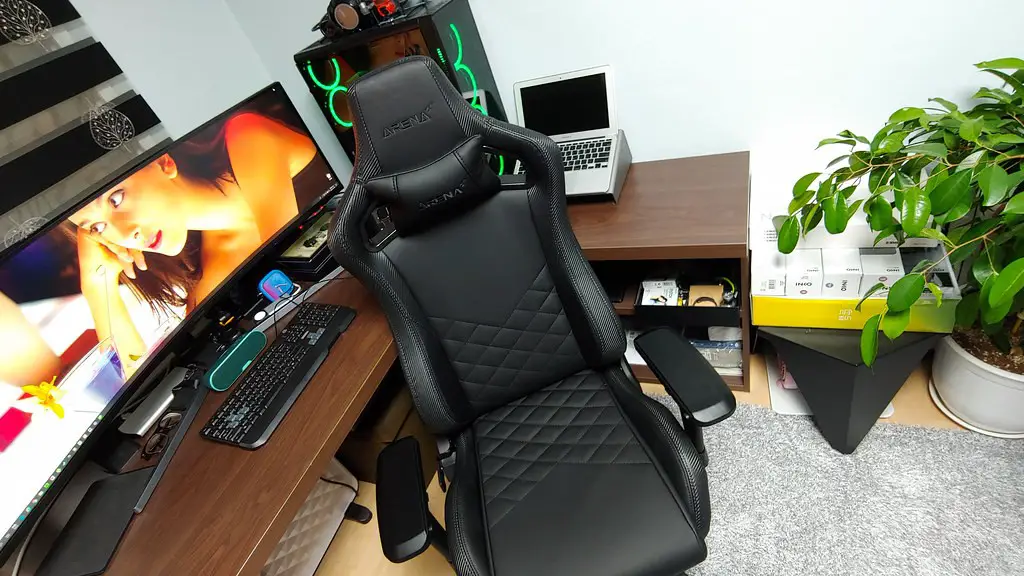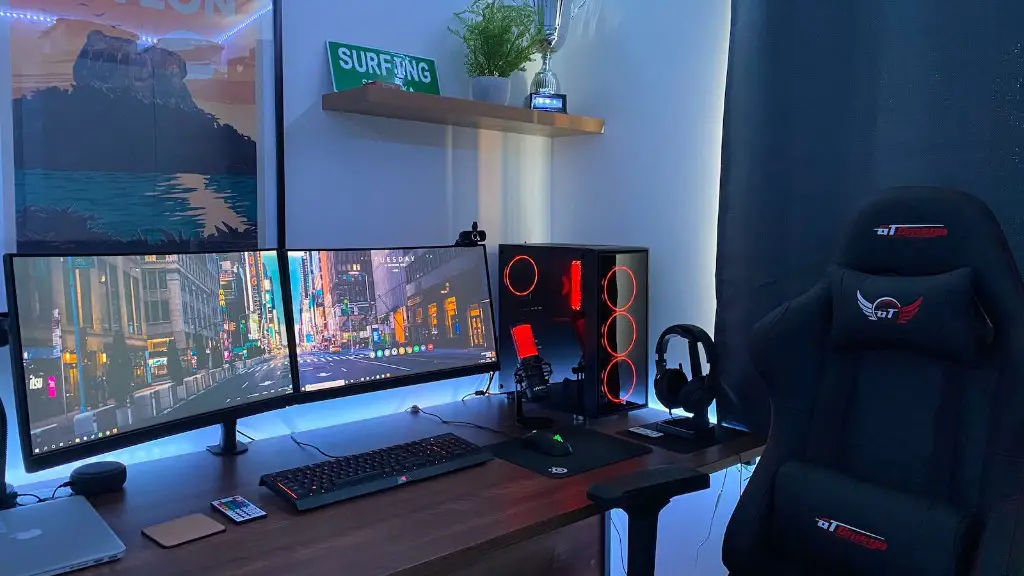Building a gaming PC can seem overwhelming at first and one of the first questions many of us may ask is, ‘what’s it gonna cost me?’. The cost of building a gaming PC will depend on a variety of factors, including the type of components you choose, the brand of components, and the number of components you decide to get. In this article, we’ll go over a few of the most important aspects of the cost of building a gaming PC and how to save money without sacrificing performance.
When it comes to performance, gaming PCs require more powerful components than typical office or home PCs. As such, the cost of a gaming PC can be higher due to the components being more expensive. The main components you’ll need to buy are the CPU, graphics card, RAM, and motherboard. These components are often available in different variations, with lower-priced models being less powerful and higher-priced models offering increased power and more features. You’ll also need to buy components such as a power supply, cooling system, hard drive, and optical drive.
While choosing higher-priced components may offer better performance, there are ways to save money without drastically impacting performance. For example, buying the previous generation of hardware can be a great way to save money. In some cases, these older components can still provide reliable performance and offer significant savings compared to their newer counterparts. Additionally, opting for more affordable brands such as AMD or Nvidia can help you save money.
It’s also worth considering what peripherals and extras will be required to complete the gaming PC. Apart from the necessary components, gaming PCs often require a monitor, keyboard, mouse, and other peripherals. If you already own a compatible monitor and other accessories, you can save a bit of money by not having to purchase them. For example, if you already own a gaming monitor, you can save money by connecting to it rather than buying a new one.
All in all, the cost of building a gaming PC will depend on the components you choose and the brand of components you buy. Higher-end components will be more expensive, while the cheaper models and generic brands can help you save money. Additionally, considering what peripherals you already own can save you money and help you stick to your budget.
Different Components and Prices
Fresh gaming PC builds have to have up-to-date components, whether it’s in the form of the processor, graphics card, RAM, or storage. Gaming components are frequently more expensive compared to their non-gaming counterparts, as they are tailored to running games at higher frame rates and in better resolutions. Generally, the prices for each of these components will depend on their respective features, but you can usually find competitive prices for what you need. You may find it helpful to research the prices for a variety of components in order to get the best deal.
The CPU is typically the most expensive component, so you may want to decide how much you are willing to spend and try to find the best processor within your budget. For the graphics card, it’s best to match it with the resolution of the monitor you intend to use in order to get the best value. For example, a 1080p monitor only needs an entry-level graphics card, while a 1440p or 4K monitor requires a more powerful graphics card. For RAM and storage, it’s important to have enough that can support each other in order to get the best performance.
Motherboards will also be required to house all your components, and they come in different sizes, features, and prices. It’s best to research what type of connections and features you need in order to find the best motherboard for you. Lastly, it’s also important to budget for a power supply and other needed items like a cooling fan, thermal compound, and an operating system.
Overall, the cost of a gaming PC heavily depends on what components and features you need. If you lack the technical know-how, it can be a bit tricky to research the different parts, so it may be useful to consult an expert or read through reviews and related articles in order to get the best bang for your buck.
Tips to Save Money
It’s fully understandable that you may want to save even more money when building a gaming PC, as many of us are on a tight budget. Here are a few tips to help you save money without sacrificing performance.
First, considering opting for used components or last-generation models. Components are constantly changing and improving, offering slight improvements compared to their predecessors. For example, buying an unused Core i7-9700K is perfectly fine for gaming as it isn’t much behind the latest Core i7-10700K. Buying used or last-generation components won’t make too much of a difference in performance, yet they cost significantly less.
Additionally, it may be worth buying components in bulk. Some online stores have discounts when ordering products in bulk and they may even free shipping if the cost of the purchase exceeds a certain amount. Thankfully, gaming PCs don’t require too many components, so taking advantage of such bulk discounts can help you save money.
Finally, you may also consider checking third-party stores or websites for deals or discounts. Often times a store has a discount on a product that is no longer sold on that website, so checking older listings for discounts may help you save significantly. Moreover, you may often find good deals at auctions or Craigslist, though doing research and being extra cautious is recommended.
Building a gaming PC can be extremely rewarding, as you get to see a project come to life, and also every interaction you have with a game is enhanced by the engineering you put into it. As such, being mindful of the cost and finding ways to save money may allow you to get the best performance and still have some money left over to put aside.
Peripherals and Software Costs
Naturally, gaming PCs require more than just internal components. For instance, peripherals such as a gaming mouse, keyboard, headset, gamepad, and other gaming accessories also need to be taken into consideration. As such, these accessories can also add to the cost and should be kept in mind when budgeting for a gaming PC.
You may also need to purchase software such as an operating system. Unless you already have some kind of system installed, you’ll need to budget for this. You can install a free operating system such as Linux, but the recommended operating system for gaming is Windows. Additionally, some games may require you to purchase additional software, or you may need to purchase productivity software for work or school tasks.
Finally, you may need other items such as cables to connect your monitors and peripherals, a desk for your tower setup, a gaming chair for extended gaming sessions, and other items that can enhance your experience. All of these can add up to significantly more cost than expected, so budgeting for these is also important.
In conclusion, while building a gaming PC is a lot cheaper than buying a pre-built gaming PC, the costs can add up very quickly. As such, researching the right components and peripherals in order to fit your budget is important if you want to put together a gaming PC without breaking the bank.
Performance vs Cost
After knowing the approximate price of the components and peripherals, it’s time to decide what components you need to purchase in order to hit the desired performance and budget. Finding the sweet spot between performance and cost can be tricky, but it mostly comes down to budgeting and researching.
Since components are constantly evolving, it may be beneficial to think about what features and performance you need at the moment, as opposed to looking for the most powerful components for future-proofing. Doing so may help keep the cost down and still give you the performance you need.
It’s also important to remember that the cost isn’t the only factor to consider when building a gaming PC. Compatibility is essential, as you want to make sure all of the parts work together optimization. It is possible for multiple components to work in the same PC, but they may not work together to the best of their abilities. It’s better to purchase components with the same specifications and performance in order to get the most out of your PC.
All in all, striking the balance between performance and cost is a personal decision and largely depends on your budget and what type of gaming you plan on doing. Weighing all the options should help you find the right combination of components within your budget.
Upgrading and Maintenance
To get the most out of your gaming PC, it’s essential to regularly upgrade components or do maintenance when needed. Upgrading components will keep your PC functioning at its best, and it’s wise to budget for this in case you want to make improvements. Additionally, setting aside money for software upgrades and occasional maintenance can help save money in the long run.
For example, while it’s possible to keep an older graphics card running in an updated game, it may not run as well as newer graphics cards. Upgrading is often recommended in order to fully enjoy the game and get the best performance. Similarly, upgrading the CPU or other components may be necessary depending on the games you’re playing or the tasks you’re running.
In terms of maintenance, you may find it helpful to clean the surfaces of your components, dust the internal components of the tower, and check for any damaged parts. You can also check for updates of your components and check the temperature of your CPU and GPU, as too-high temperatures can decrease performance. It’s usually best to seek professional help for any maintenance or upgrade tasks.
Overall, upgrading components and performing regular maintenance may be important to optimize the performance of your gaming PC and extend its lifespan. Keeping track of updates, researching prices and deals, and seeking help are all great ways to save money and ensure you can get the best performance out of your gaming PC.




